One of the lesser-known, yet important aspects of dog health is the proper maintenance of their anal glands. These small, scent-producing glands play a role in marking territory and communication between dogs. To ensure our canine companions stay healthy and comfortable, it’s essential to understand how to address issues related to anal gland expression. Anal gland issues typically arise after a dog goes to the groomer. I’ll tell you why this happens and what you can do about it.
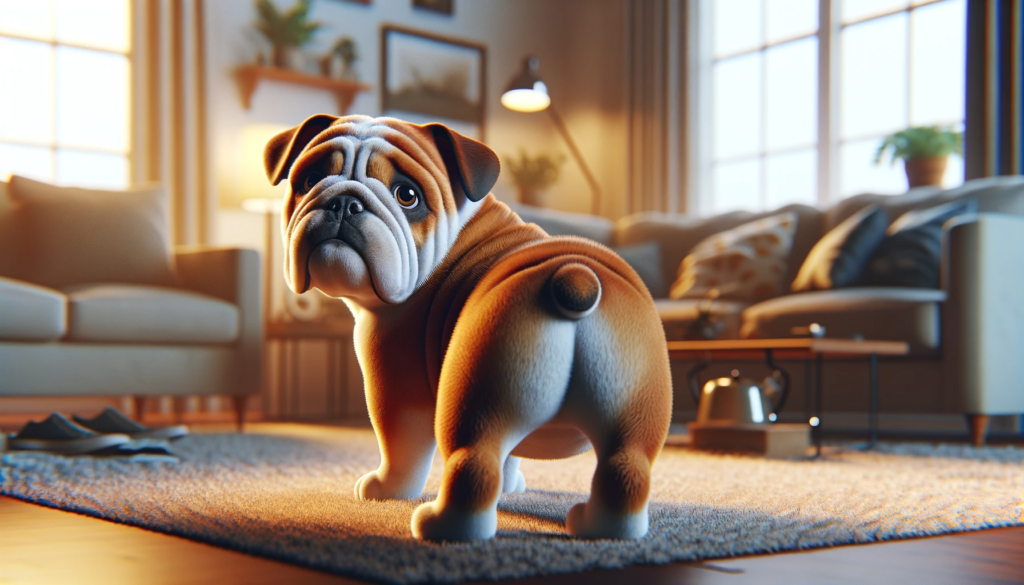
Dog Leaking After Glands Expressed? Here’s What to Do
If you’ve noticed that your dog is still leaking after having their glands expressed, don’t worry – I’m here to help you navigate this issue.
There are a few common reasons why leakage might be happening:
- Incomplete expression: Sometimes, a gland may not be fully expressed, which can cause continued leakage.
- Infection or inflammation: If the anal glands become infected or inflamed, they may continue to leak even after expression.
- Grooming procedures: Groomers causing bruising due to improper external pressure
- Gland injury: In rare cases, the gland or surrounding tissue may be injured during expression, causing ongoing leakage.

To tackle this situation, you can take the following steps:
Cleaning the area: Use a gentle pet-safe wipe to clean the area around your dog’s rectum. This will help remove any leaked fluid and minimize the risk of infection.
Monitoring for improvement or worsening symptoms: Keep an eye on your dog’s behavior and the appearance of the anal area. If the leakage stops after cleanup and your dog seems comfortable, the issue may resolve on its own. However, if the leakage persists or worsens, it’s time to consult a veterinarian.
Consulting a veterinarian: If the leakage continues or you notice other concerning symptoms like redness, swelling, or pain, it’s best to seek professional help. Your vet can diagnose the underlying cause and provide appropriate treatment.
Why Does My Dog Keep Needing His Glands Expressed?
You might be wondering why your dog seems to need their glands expressed more often than others. Several factors can contribute to this:
To reduce the frequency of gland expressions, you can take some preventative measures like adjusting your dog’s diet, helping them lose weight if they’re overweight, and ensuring they are not experiencing any food allergies or sensitivities.
- Breed predisposition: Some breeds, like small dogs and those with short noses (brachycephalic), are more prone to anal gland issues.
- Obesity: Overweight dogs are at a higher risk for anal gland problems, as excess fat can put pressure on the glands.
- Diarrhea or soft stools: Consistently soft stools may not provide enough pressure to naturally express the glands during defecation.
- Sedentary lifestyle: A lack of exercise can contribute to poor muscle tone and reduced bowel motility, which may affect anal gland health.
- Food sensitivities: Some dogs have food sensitivities which creates inflammation as that food ingredient goes through your dog’s digestive tract. This continues all the way to the end of the line- and mucosal irritation can clog the gland ducts.
To reduce the frequency of gland expressions, you can take some preventative measures like adjusting your dog’s diet, helping them lose weight if they’re overweight, and ensuring they are not experiencing any food allergies or sensitivities.
Why Does My Dog Still Smell After Glands Expressed?
It can be quite frustrating when your dog still smells after having their glands expressed. This issue might arise due to several reasons. One possibility is incomplete gland expression, where the glands were not fully emptied during the process, causing the remaining fluid to emit an odor. Another cause could be an infection or inflammation in the anal glands, which can produce a strong smell even after expression. Lastly, fecal contamination might be contributing to the odor, as fecal matter can sometimes become trapped around the anal area.
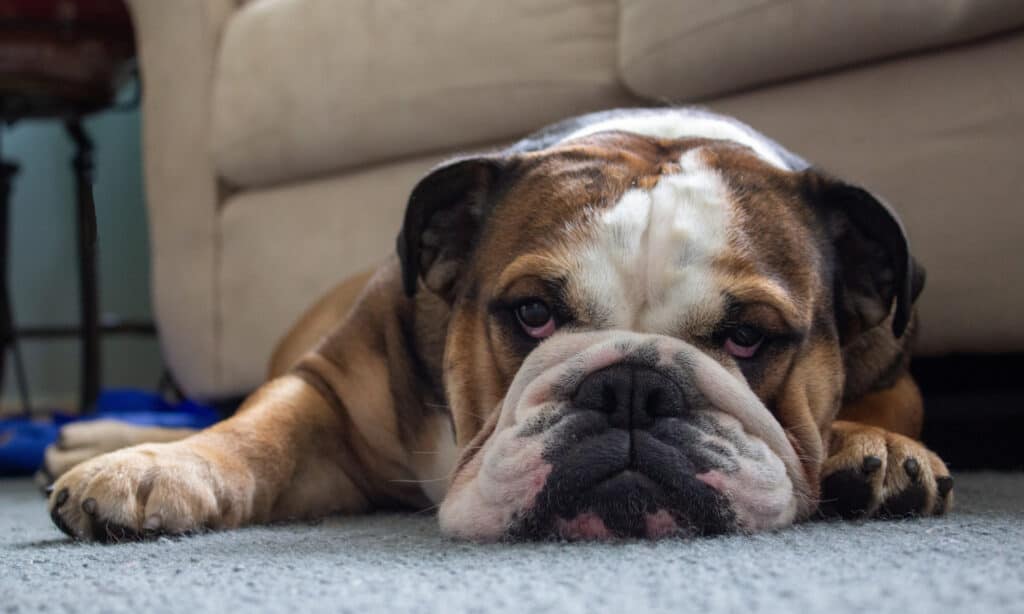
How Do I Stop My Dogs’ Glands From Leaking?
To help prevent your dog’s glands from leaking, consider these lifestyle changes and veterinary interventions:
- Diet adjustments: A high-quality, high-fiber diet can promote healthy bowel movements, which can help express the glands naturally.
- Exercise and weight management: Regular physical activity can improve your dog’s muscle tone and bowel motility while maintaining a healthy weight can reduce pressure on the glands.
- Regular grooming and hygiene: Frequent bathing and trimming the fur around the anus can help prevent fecal contamination and reduce the risk of infection.
If lifestyle changes aren’t enough, your vet may suggest medications or, in severe cases, surgical options to address the problem.
Note: Surgical options should be the absolute last resort. Although when described, the surgery may seem simple, these surgeries are extremely invasive. Disruption of nerves in this gland area can cause paralysis and incontinence.
Can Dogs Express Their Own Glands By Licking?
While dogs may attempt to express their glands by licking, this isn’t always effective and can even cause complications. Excessive licking can introduce bacteria to the area, leading to infection. It may also irritate the skin and cause inflammation.
If you notice your dog persistently licking or biting at their anal area, it’s important to investigate the cause. They may be trying to express their glands, but it’s also possible they’re experiencing discomfort from another issue.
When Do I Need To Go To The Vet?
As a pet expert, I understand that it can be tough to know when it’s time to seek professional help for your dog’s anal gland issues. Here are some indications that a visit to the vet is necessary:
Persistent leaking or odor: If your dog continues to leak or smell even after you’ve tried the suggested steps, it’s time to consult a veterinarian.
Swelling, redness, or pain in the area: These signs may indicate infection, inflammation, or an abscess, all of which require professional treatment.
Signs of infection or abscess: If you notice pus, blood, or a foul smell around your dog’s anus, it’s crucial to seek veterinary care right away.
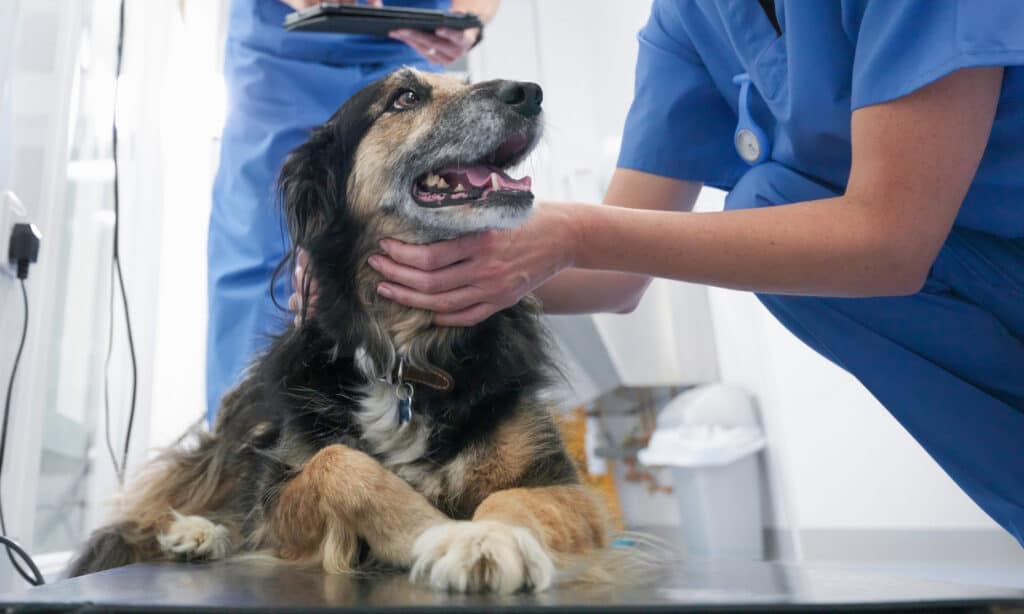
Symptoms to Watch For
It’s important to keep an eye out for potential anal gland problems in your dog. Some common indicators include:
- Scooting or dragging their rear: If your dog is scooting or dragging their rear across the floor, it may be a sign that their anal glands are causing discomfort.
- Excessive licking or biting at the area: Persistent licking or biting around the anus can indicate irritation or an attempt to express the glands.
- Swelling or discharge around the anus: These symptoms may suggest infection, inflammation, or an abscess.
How to Monitor Your Dog for Changes in Anal Gland Health
To stay on top of your dog’s anal gland health, follow these tips:
- Regularly inspect the area: Look for signs of swelling, redness, or discharge, and take note of any unusual odors.
- Observe your dog’s behavior: Watch for scooting, excessive licking, and changes in bowel movements or stool consistency.
- Track the frequency of gland expressions: Keep a log of when expressions are needed, and note any patterns or changes in frequency.
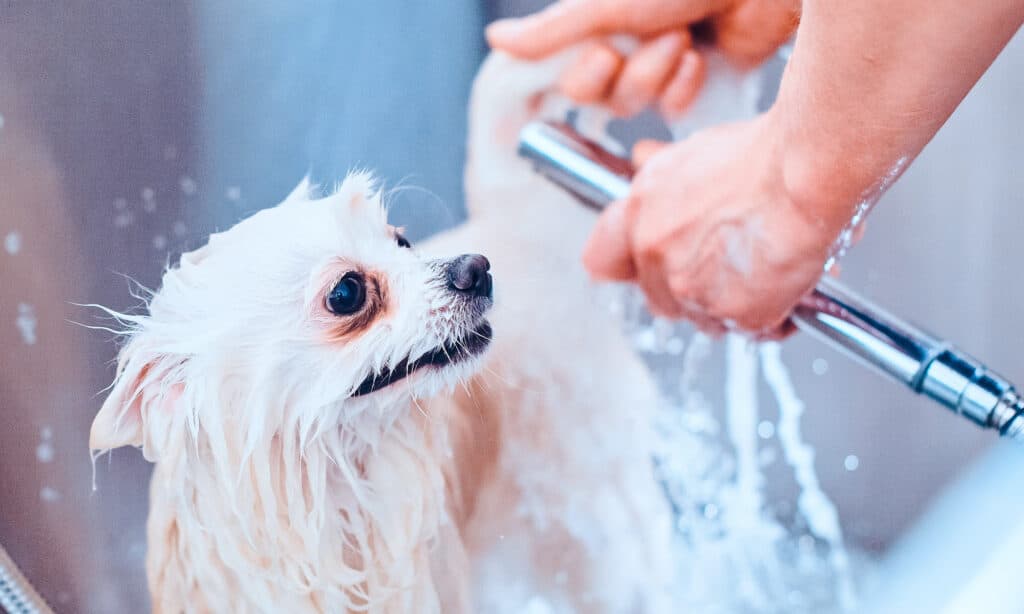
Home Remedies and Preventative Measures for Anal Gland Issues
To help prevent anal gland issues, consider these home remedies and preventative measures:
Diet and Supplementation
Feed your dog a high-quality, high-fiber food, and consider adding pumpkin or other fiber-rich ingredients to their meals. Probiotics and digestive enzyme supplements may also be beneficial.
Grooming and Hygiene
Bathe your dog regularly, making sure to clean the anal area, and trim the fur around the anus to prevent fecal matting.
Exercise and Weight Management
Encourage regular physical activity to promote healthy bowel movements, and help your dog maintain a healthy weight to reduce pressure on the glands.
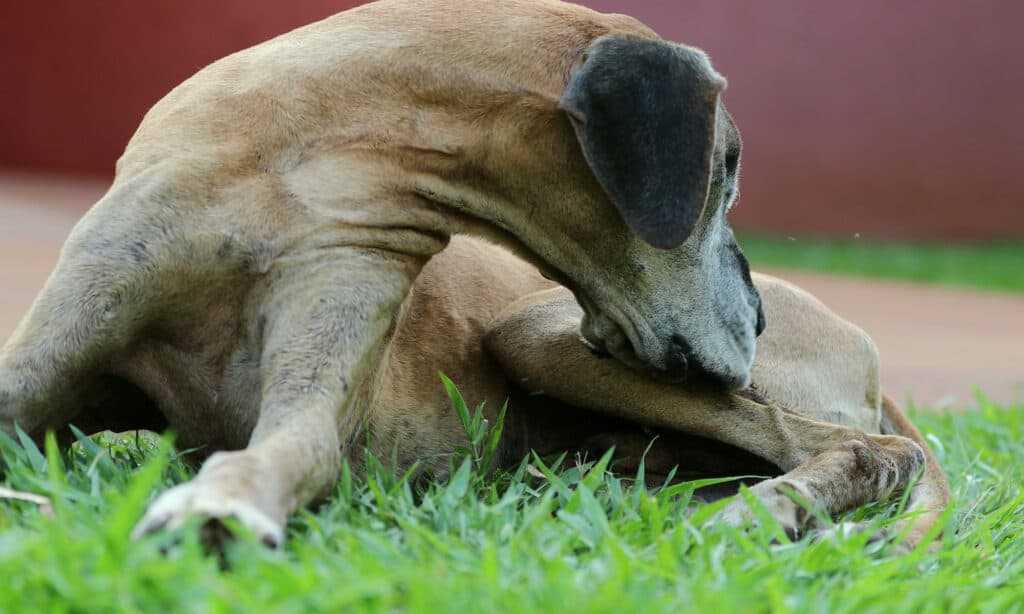
Conclusion
Understanding the causes of anal gland leakage, taking appropriate action to address and prevent issues, and monitoring your dog’s anal gland health are all essential steps for ensuring the well-being and comfort of your furry friend. By being proactive and working closely with your veterinarian, you can reduce the risk of more serious health problems and help your dog live a happy, healthy life.
~Daniel Bird
